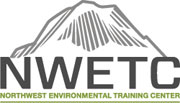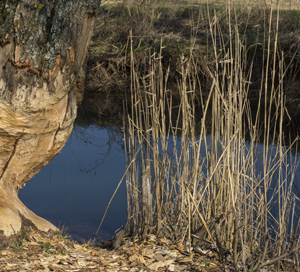|
Description: **This course will be presented online as a live webinar in three 2-hour sessions. Sessions will be recorded and will be available to all enrolled attendees. All paid registrants will receive a certificate of completion of 0.6 CEU's** All sessions will be from 10 a.m.-noon Pacific (11 a.m. to 1 p.m. Mountain) (noon to 2 p.m. Central) and (1-3 p.m. Eastern). Group discounts are available. Please call Robert Harkins at 425-270-3274 ext 100 for more information. This webinar is being presented by Sustainable City Networks and NWETC This 6-hour (two hours per day for 3 consecutive days) webinar provides attendees with an overview of the planning process for conducting habitat site restoration and mitigation plans. Habitat restoration/mitigation programs should address all aspects of a site’s ecosystem, rather than simply enhancing a particular species or group of species. With this in mind, the course material is designed to introduce a complete approach. Attendees will learn to assess site needs, and to create a plan that addresses them using the complete approach. However, since there are times when restoration/mitigation is needed to address specific species, such as special-status or game species which may require specific adaptations, attendees will also learn how to create a species specific restoration/mitigation plan. In addition, attendees will learn the methods of determining debits for impacts and credits for mitigation. An outline for writing restoration/mitigation plans will be presented, which is as “bullet-proof” as possible in terms of providing sufficient information for gaining any necessary approvals and for implementing the plan. (It is recommended that attendees register for “Habitat Site Restoration and Mitigation: Implementing a Successful Restoration Program-Webinar”, which takes place the week after this webinar, for key implementation information) Topics covered include determining goals; the background research needs necessary to determine the appropriate type and feasibility of restoration; restoration/mitigation planning processes (soil and hydrology, and planting plan considerations); regulatory and permit consideration; early considerations of unanticipated effects/adaptive management, bioengineering possibilities, best management practices (BMPs), buffers to minimize outside disturbances, climate change considerations, engineering considerations, cost estimations, and a method to determine success criteria. Registrants are encouraged to send any specific questions regarding Habitat Restoration Planning to info@nwetc.org by no later than 2 weeks before the course. Questions will be forwarded to the instructor, and time permitting, the instructor will attempt to integrate relevant attendee questions into the material presented.
Intended Audience: Biologists, landscape architects, planners, and environmental engineers. The course will be designed for those with limited to moderate amounts of experience in natural area management, natural resource management, or in environmental permitting.
Continuing Education Units: 0.60 CEUs
Course Topics
After completing this course, participants will be able to: · Develop realistic restoration goals · Determine background/baseline conditions for potential restoration/mitigation · Determine regulatory considerations for the planned restoration · Understand restoration planning needs · Determine suitable site conditions and research needs · Understand needs for soil conditioning, hydrology/irrigation needs, and planting plans
About the Instructor
 Larry has been an ecologist for 45 years, with experience in both the public and private sectors. With a M.S. degree in biology from Baylor University, with his thesis researching primary production in east Texas peatlands, his interest through the years has been on the ecological functions of natural systems. He has worked as a natural resources biologist for the Texas Parks and Wildlife Department (park operations), an ecologist for the Alaska Department of Environmental Conservation in coastal management and wetland regulation, and as an ecological consultant in California, Oregon, and Washington. During the fall of 2016, Larry taught an upper level undergraduate class entitled Wetland Ecology, at The University of Montana Western.
Larry has written a number of journal and newsletter articles, and has participated in a number of conferences over the years. He recently published his new e-book, "Creative Habitat Restoration: Comprehensive Planning, Implementation, and Long-Term Management".
Larry has taught courses in habitat restoration in Washington, Oregon, California, Colorado, Texas, and in Vancouver, British Columbia, and has mentored many entry-level biologists in the science of habitat restoration.
What to Bring
Since this is a webinar, please make sure you have a good internet connection and a quiet space for training or headphones.
Billing Information
In order to guarantee a space in a course, the tuition must be paid in full TWO WEEKS before the first day of the course by either check or credit card. State and government agencies paying with a purchase order are allowed payment under the two-week time frame if a copy of the purchase order is received by NWETC.
If You Need to Cancel
Cancellations*-
With 31 or more days notice, we will offer a 100% refund or credit towards a future course. The credit is good for one year and may be applied to any course.
- With 30-8 days notice, we will offer a course credit towards a future course. The credit is good for one year and may be applied to any course.
- With fewer than 8 days notice, there is no course credit available
*Please note that attendee replacement is welcome at any time
Disability Accommodations
Disability Accommodations:To request disability accommodations, please contact us at info@nwetc.org or 425-270-3274 at least 30 days prior to the event.
|










